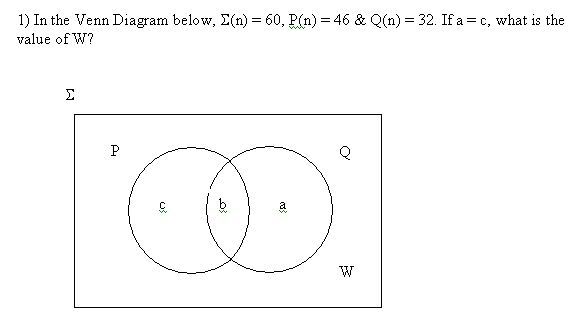Sec 2 Maths Problem
-

-
Sorry, typo error, the condition should be if a=b, what is the value of W?
-
Are you sure the question is right?
-
n(Q) = a + b
Since a = b (given by TS in his 2nd corrected post), n(Q) = a + a = 2a
Given that n(Q) = 32, 2a = 32, a = 16 ie b = 16 too
n(P) = b + c = 46
16 + c = 46
c = 30
Hence,
a + b + c + W = 60
16 + 16 + 30 + W = 60
62 + W = 60
W = - 2 but W cannot be negative
Hence, this question is WRONG.
PS : In set notation, we do not write P(n). Instead. we write n(P) ie the number of
elements in the set P.
-
lols this qns ain't making sense...
if a = c, why
(a + b) not = to (c + b)?
or is it just me... PS. long time nvr touch maths xP